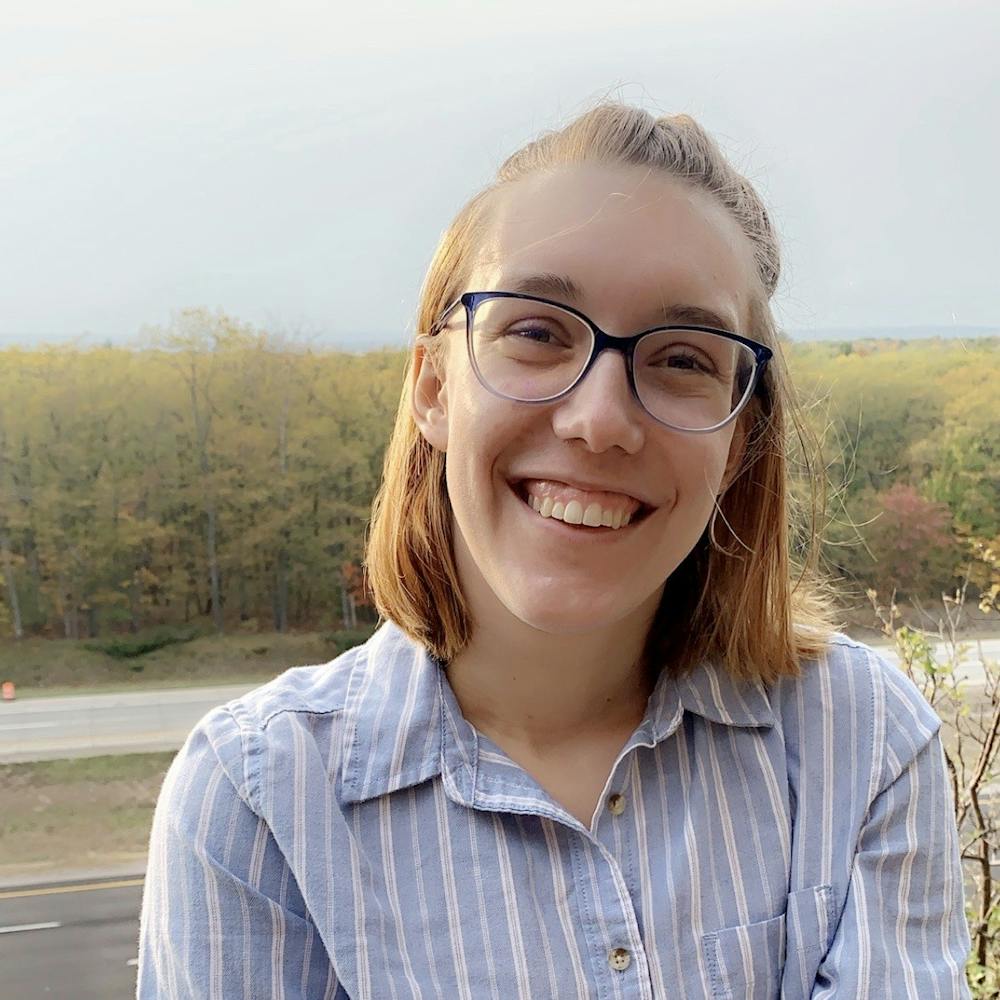Guest Column: Universal Design helps everyone, so why is Closed Captioning a luxury?
Whether or not they know it, people benefit from a form of disabled technology every single day.
Sidewalk cutouts were first made to allow wheelchair users to access sidewalks and buildings. They were never made for people on bicycles, people using skateboards or mothers’ with their baby strollers. In fact, they are required in the United States via the Americans with Disabilities Act.
I introduced legislation to the Student Government Association (SGA) in order to create something similar to sidewalk cutouts, by encouraging the university to allow third-party closed captioning for all lectures.
As a hearing-impaired student on campus, the idea of universal design really struck a chord with me while writing this legislation. I believe, in an ideal world, accessibility should be made readily available. The legislation was later amended to include two current caption options (recorded lectures that were captioned and turning on automatic captioning), as well as pricing at senators' requests.
It should be said that closed captioning is not just a tool for deaf people. It can be used by people with ADHD, auditory processing disorders, dyslexia, people listening in their non-native language, people who use lip-reading, people who struggle with retention and many others. In fact, according to a study by British Broadcasting Corporation, 80 percent of closed caption users had no hearing disability. Captions have been shown to increase attention, retention, comprehension and have no known drawbacks.
Unfortunately, we do not live in an ideal world where accessibility is readily available. We live in a world where disabilities are not automatically accommodated. In this world, disabled people are often overlooked, ignored, and sometimes, defeated. The SGA’s dismissal of the closed captioning legislation is proof of this.
Yes, closed captioning through a third party would be expensive for the university. However, the SGA Senate said captioning was "more of a luxury service than a necessity," but is it really? Is it a luxury to be able to understand a professor during a lecture? I don’t believe knowing what my professor says is a luxury any more than I think sidewalk cutouts are a luxury.
During the process of discussing this legislation, I often remarked on how I had never seen legislation torn down like this before, especially for such a worthy purpose. Week after week, I awaited the soul-crushing remarks that were made about my bill. SGA doesn’t introduce how to create legislation or what to look for in good legislation to new members. SGA merely gives you a template for writing the legislation, buried within the Central Engage website.
Now, the main argument is why do people who use captions not register under Student Disability Services? When I discussed this legislation with Michelle Veith, the director of Student Disability Services, she said that some people just don’t meet the requirements or don’t register.
According to InsideHigherEd, two-thirds of students don’t receive accommodations because the university doesn’t know about their disability. However, that doesn’t mean that captioning shouldn’t be available to those who need it or want it.
Another argument I heard was that recording lectures to caption them had ethical implications. I felt this was more of an intellectual property rights issue, as no one is forcing the professors to record their lectures.
If professors wanted to turn on automatic captioning, that would have been more than sufficient. However, captioning afterward allows for a more accurate depiction of what is being said. When it comes to things such as typing mathematical concepts or deciphering heavy accents, outside captioning resources would be much more efficient. It is important to ask, though, what is more unethical? Having professors record lectures for captioning, or letting people who need captions forego them in a time where every lecture is, in some way, online?
I leave with one last thought. I cannot change my ability to hear, but I introduced this legislation to create change where I saw a great need. This change could ultimately serve every person on campus. The legislation was well-researched and well written for a very important issue. For the Student Government to overwhelmingly decide to not introduce this change, it made me feel like my disability should be a source of shame. In the end, the SGA Senate determined they were more dedicated to the university than to the students it claims to represent.
Nova Moore, of Clio, is a sophomore studying physics, mathematics, and music with an interest in celestial seismology. They currently work as a video production editor for the Clarke Historical Library and have plans to intern for a physics program this upcoming summer.




